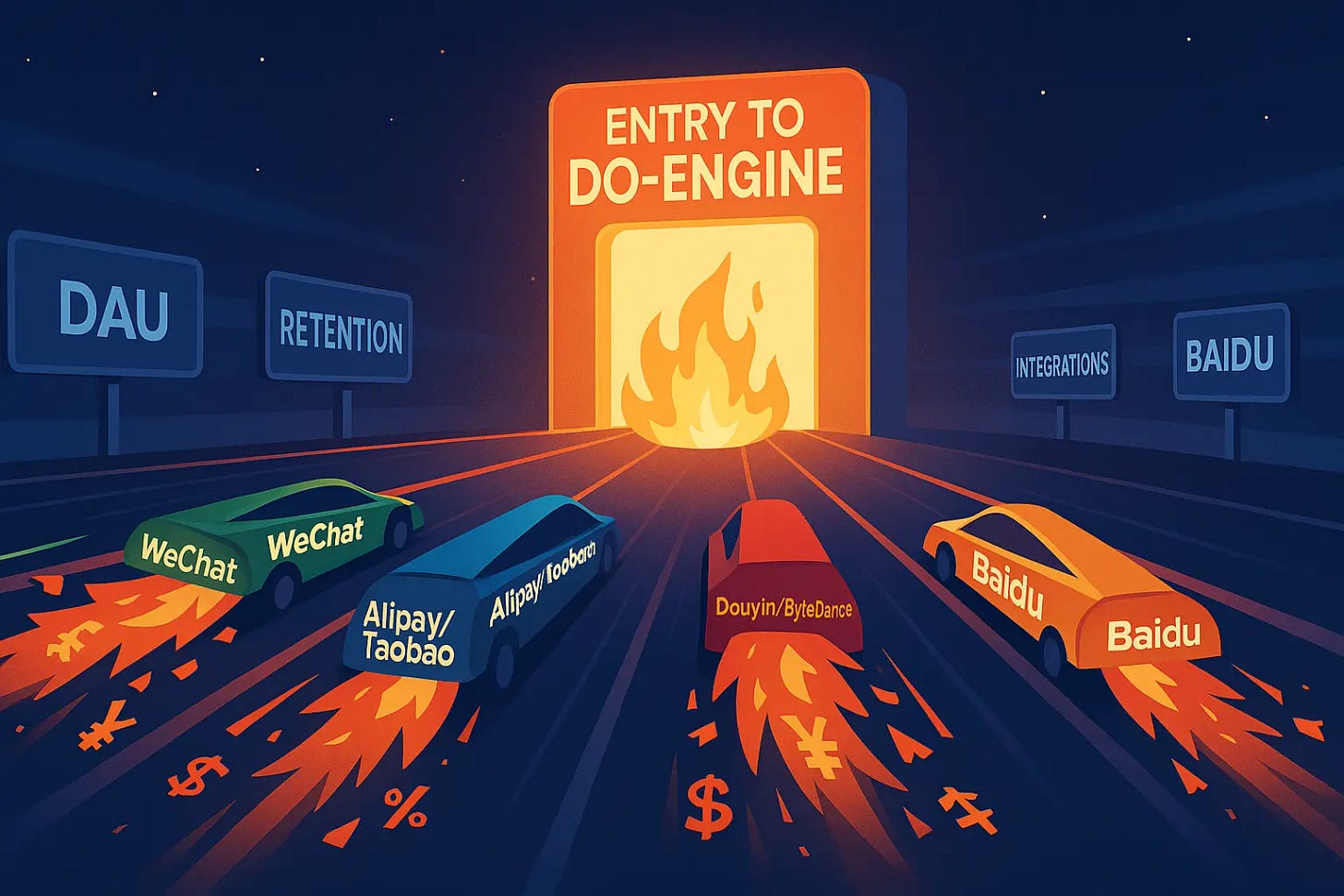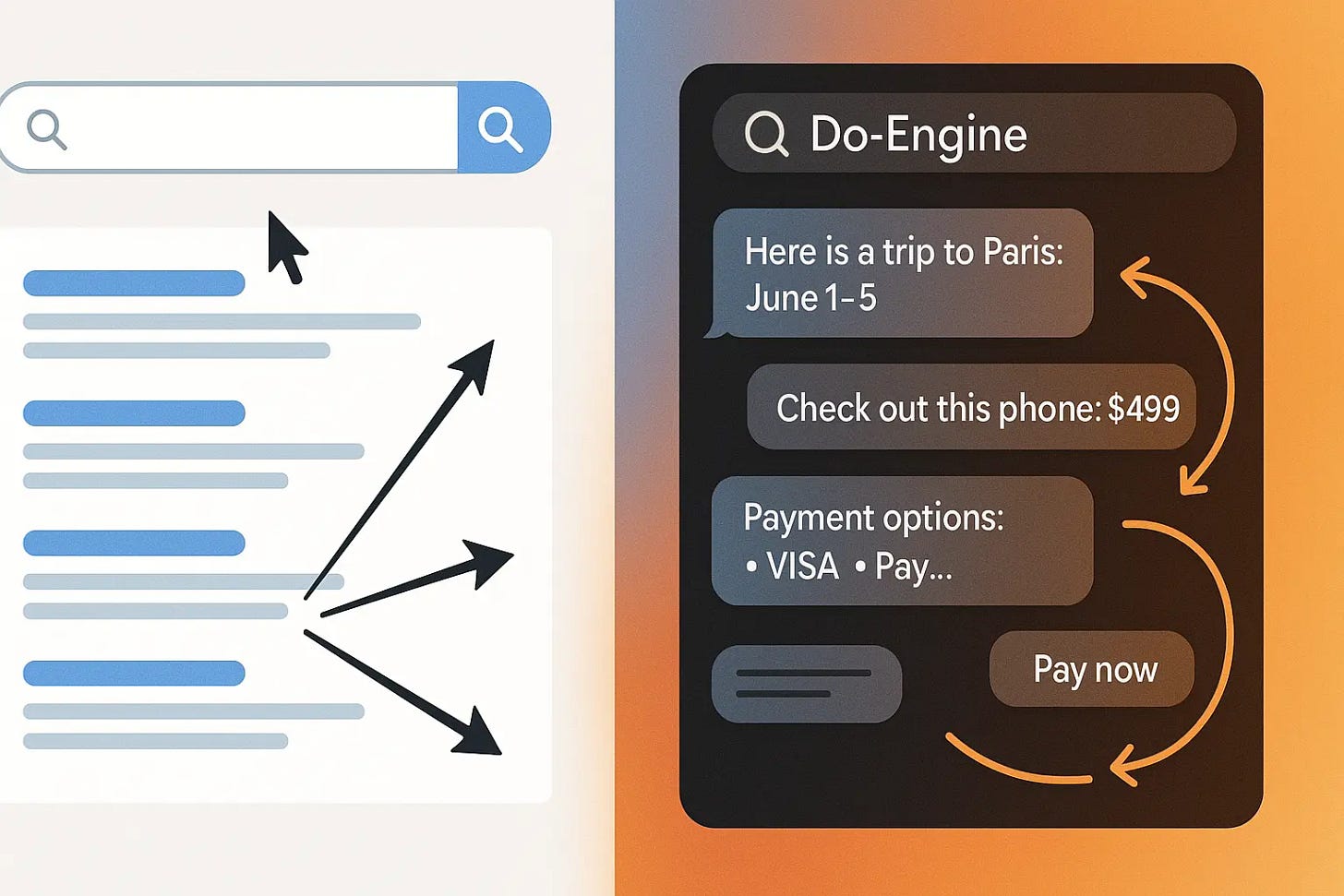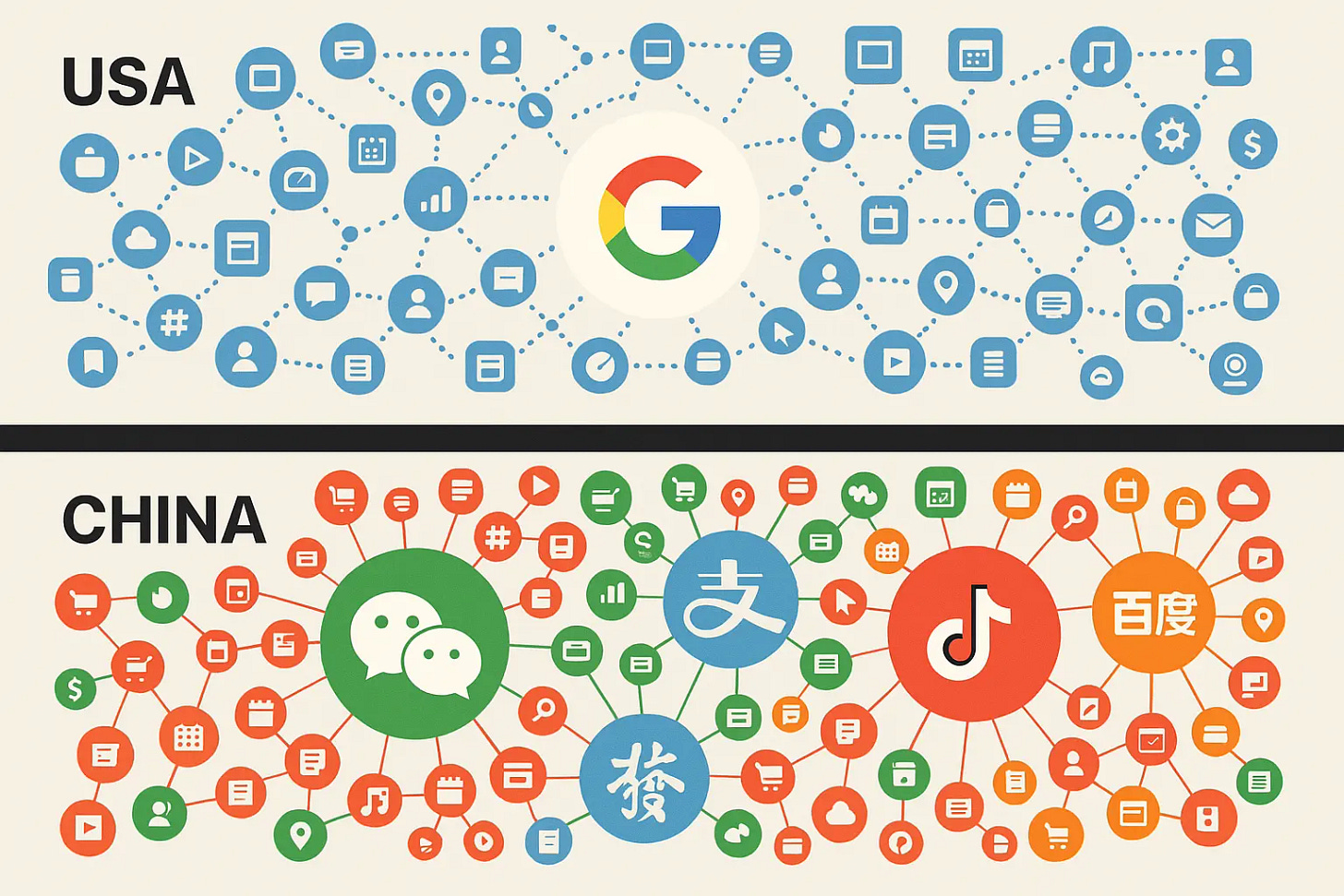The Billion-Dollar Bonfire: China's AI War and the Creation of the 'Do-Engine'
China’s internet giants are racing to replace search with a transactional “do-engine”—and paying billions to lock in users.
Spend a billion yuan (US$140 million) on advertising in a single month. Then do it again the next. This isn’t a hypothetical; it’s the operational reality of China’s AI war in mid-2025. Alibaba’s Quark and Tencent’s Yuanbao are engaged in a marketing blitz so intense it makes the early-2010s ride-hailing subsidies look quaint. They are pouring capital into a bonfire with a simple, brutal goal: acquire users at any cost.
From the outside, this looks like another chapter in the global AI arms race—a costly battle to see who can build a better chatbot. But that’s a fundamental misreading of the situation. This isn’t a fight to win search; it’s a fight for what comes after search. The tech giants are burning cash not to build a more efficient information portal, but to seize control of the next-generation operating system for daily life—an integrated “Do-Engine” so powerful and convenient that it makes the traditional search box, and the fragmented app ecosystem it supports, completely obsolete.
This is a war driven by existential fear and fueled by unprecedented ambition. The goal is to forge the ultimate form of ecosystem lock-in, creating a conversational OS so deeply embedded in a user’s life that switching becomes unthinkable. The astronomical cost and uncertain path to profitability reveal the deepest anxieties and grandest strategic bets of China’s most powerful technology companies. This is not just about the future of AI; it’s about the future of the internet itself.
Farewell to the Ten Blue Links: The Rise of the ‘Do-Engine’
For two decades, the internet’s front door was a simple text box. You typed in keywords, and it gave you a list of links. Google perfected this model, building a trillion-dollar empire on the business of referral traffic. But in China, that model is now being systematically dismantled.
“Farewell to search,” read a recent marketing poster from Alibaba’s Quark. This wasn’t just clever copy; it was a declaration of strategic intent. Quark, Baidu, Tencent, and ByteDance are aggressively re-architecting the user’s entry point to the digital world. The objective is no longer to be a starting point for a journey across the web; it is to be the destination itself.
This is the “Do-Engine” concept in action. When a user in China asks an AI agent to “plan a weekend trip to Beijing,” they aren’t looking for links to travel blogs. They expect a fully-formed itinerary, complete with real-time flight and hotel availability pulled from integrated platforms, restaurant recommendations based on live user reviews, and a navigable route planned in a native mapping service. The AI doesn’t just find information; it synthesizes, plans, and executes. It’s the difference between being handed a library card and having a personal librarian who also runs your errands.
This ambitious vision is a uniquely Chinese play, powered by a structural advantage that Western counterparts fundamentally lack: the fully integrated, walled-garden ecosystem.
Baidu, the traditional search incumbent, is leveraging its vast repository of search data and web indexing capabilities by adopting the Model Context Protocol (MCP), a cutting-edge framework popular in the LLM ecosystem. Through MCP, Baidu has integrated over 18,000 third-party services—from finance and e-commerce to government services—directly into its new AI framework, allowing its agent to not just answer questions but also trigger real-world actions by tapping into its decade-long accumulation of web data and service partnerships. Baidu has publicly signaled MCP support at its developer events as well (source).
Alibaba’s Quark is designed as the conversational front-end to a sprawling commercial empire. Its power comes from its ability to seamlessly bridge a casual query (“I need a new laptop for video editing”) to a curated list of products on Taobao, complete with financing options from Ant Group, all within a single interface.
Tencent’s Yuanbao is being woven into the very fabric of the WeChat universe. It is positioned to become the conversational interface for a billion users’ social graphs, payment histories, and Mini Program activities, transforming idle chat into commercial intent. Yuanbao has been integrated directly into WeChat as a contact, and WeChat’s scalemakes that reach immediate.
ByteDance’s Doubao is the generative layer for a colossal content machine. It is evolving from a simple chatbot to an engine that can create personalized content, edit videos in CapCut, and drive discovery within the Douyinecosystem, completing the content-to-commerce loop.
This stands in stark contrast to the West. While Google cautiously rolls out AI Overviews, perpetually worried about cannibalizing its core ad-referral business, Chinese players are going all-in. They are not encumbered by the legacy of referring traffic to an open web; their entire business model is based on keeping users within their ecosystem to complete a transaction. This gives them both the incentive and the structural ability to build a far more integrated and ambitious product. They aren’t trying to incrementally improve search; they are trying to replace it entirely.





